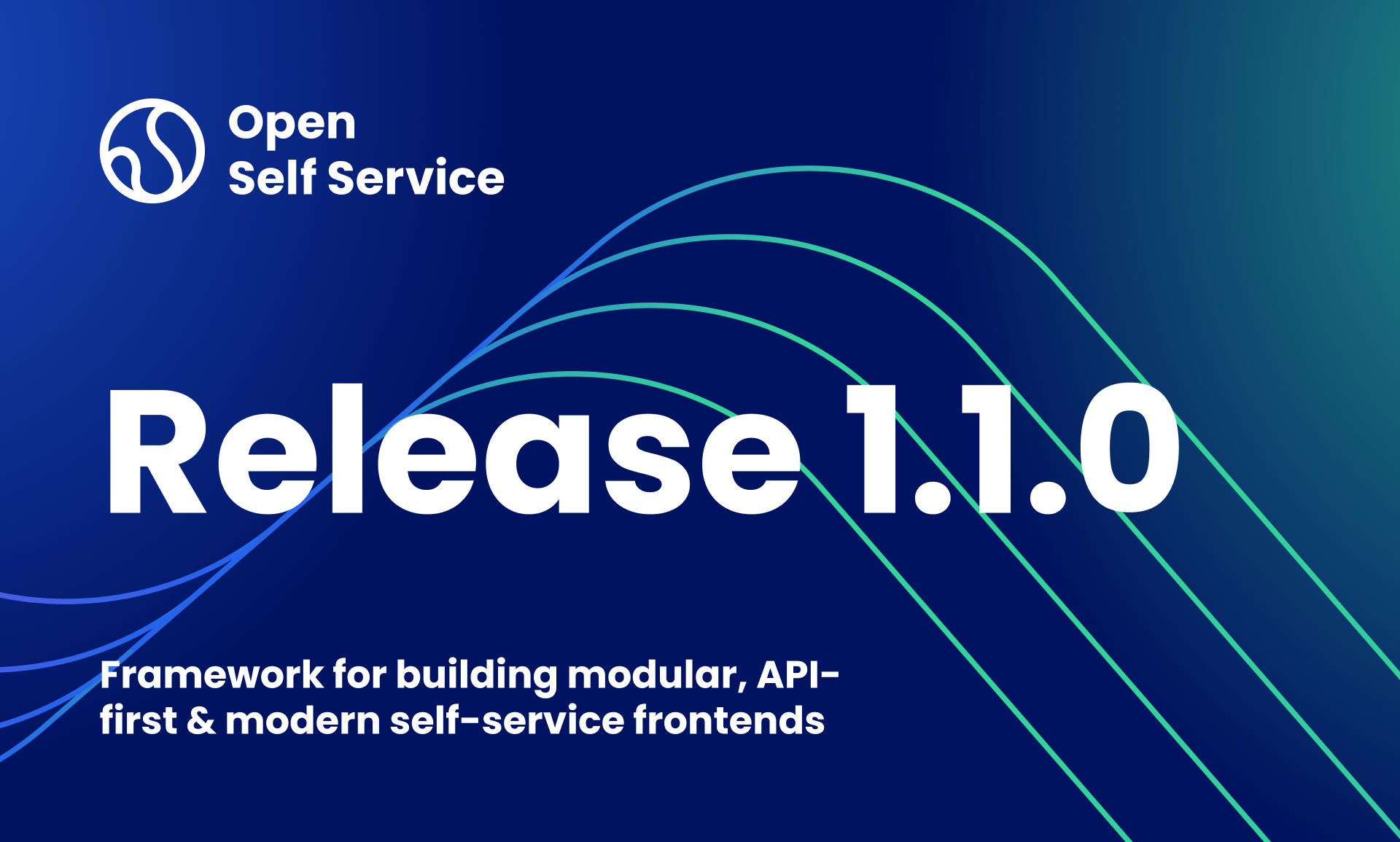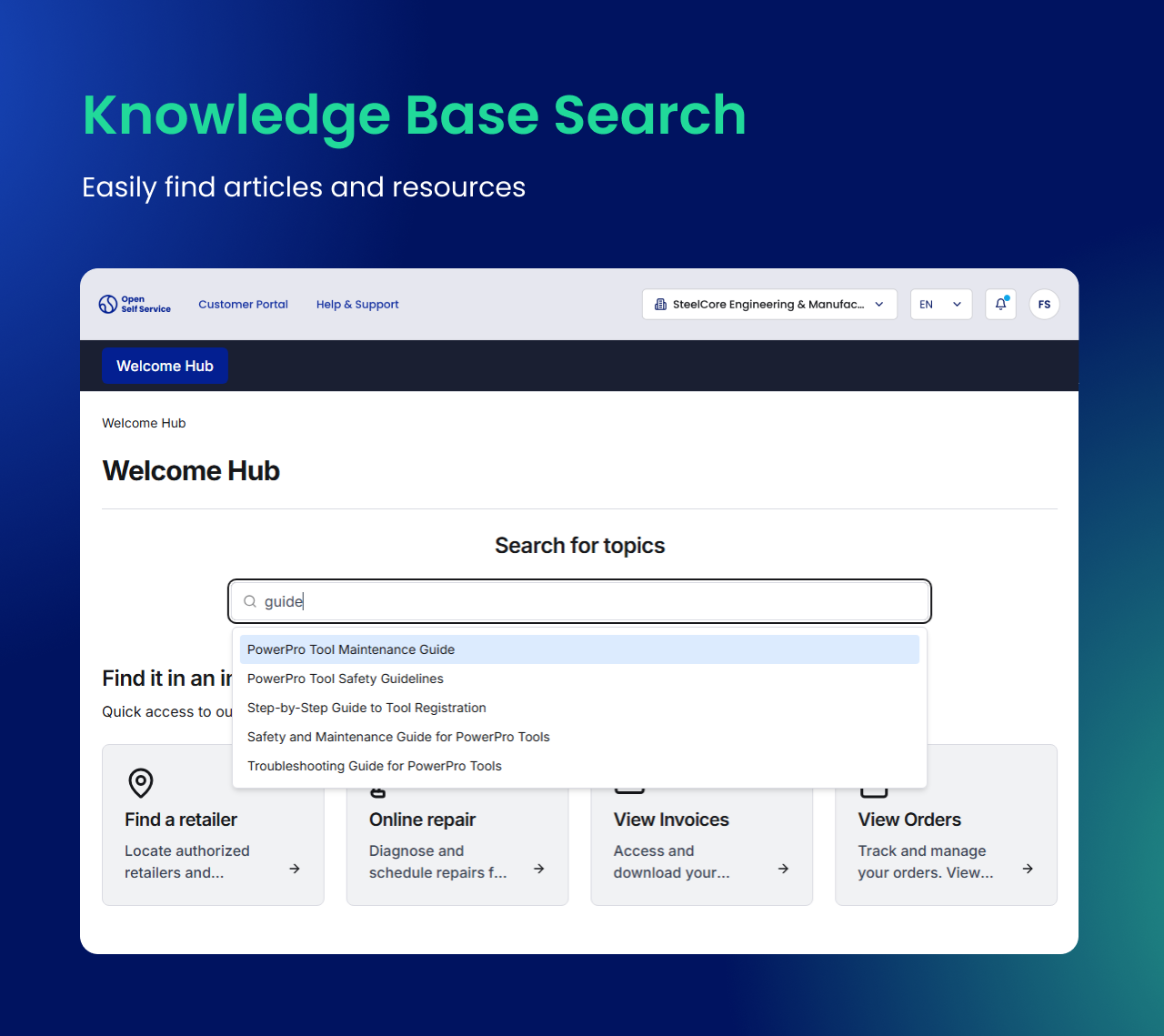Release 1.1.0

In this release, we're bringing significant updates to help you get the most out of Open Self Service. From new features like knowledge base search to a refined authentication process, every enhancement is designed to empower your development workflows while streamlining user experiences. Let’s dive in!
New features
Knowledge Base: Now with Search Integration
We are thrilled to introduce a search block for the Knowledge Base, designed to deliver a smoother navigation experience across articles and resources. Whether users need quick solutions or in-depth information, this feature ensures they find it with ease.

Additionally, this block can be easily integrated with Algolia to power the search functionality. This integration will provide fast, accurate, and intelligent search capabilities, enhancing the overall user experience.
Other changes
Medusa integration
With Medusa now integrated, O2S offers seamless backend connectivity to a robust e-commerce platform. You can now can easily leverage Medusa's capabilities to enhance online shopping experiences within self-service areas.
Interested? Check out the dedicated blog post for a deeper dive into this exciting update.
Strapi content model and sample content
To help developers get straight to building, we've created a GitHub repository with external tool configs. Stay tuned for more updates!
As the first config, we have prepared an export of both the content model and example content from Strapi. This will significantly simplify the process of setting up your own CMS server by providing you with a predefined structure and sample data to kickstart your project.
With this export, you receive a ready-to-use content model that mirrors O2S's structure, ensuring everything is organized and optimized from the start. From there, you can fully customize both the content model and data to suit your specific needs.
To start, go to the Strapi folder where you can find the instruction on how to import the content into your own Strapi instance.
A new approach to the user authentication process
We have reworked how the user authentication process is handled within the Frontend app. Before, the actual integration was hardcoded into the Next.js app, making replacing one authentication process with another quire cumbersome, even taking into the account that it relies on Auth.js.
Now, the authentication process can be extracted into integration packages, in a similar way as integrations work within the API Harmonization Server. This makes it possible to prepare several pre-configured integrations with external services (like Keycloak, Azure, or direct database connections) that can be easily plugged in into the O2S, without having to refactor the whole app.
Existing authentication that was configured has been moved into the o2s/integrations.mocked package, where all the necessary methods (like Prisma config or session handling) are implemented. For more details take a look into that package in the GitHub repo.
Docker Support for simplified deployments
We've made deploying O2S even easier by providing sample Docker configurations, including a Docker Compose config.
We hope this will help you run the Open Self Service either locally or using the containerization tools of your own choosing.
Anonymous telemetry
We’ve added an anonymous telemetry system for insights into O2S usage. While completely optional, this data will guide us in improving the platform for everyone.
More details about what information is collected and how to opt-out can be found on the Telemetry page in our docs.
Bugfixing and security updates
We are constantly ensuring that the app remains stable and secure by implementing regular bugfixes and updating dependencies. These updates are part of our ongoing commitment to maintaining a reliable and up-to-date platform.